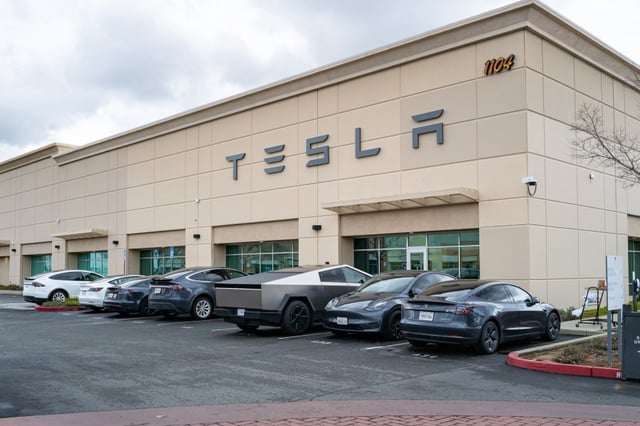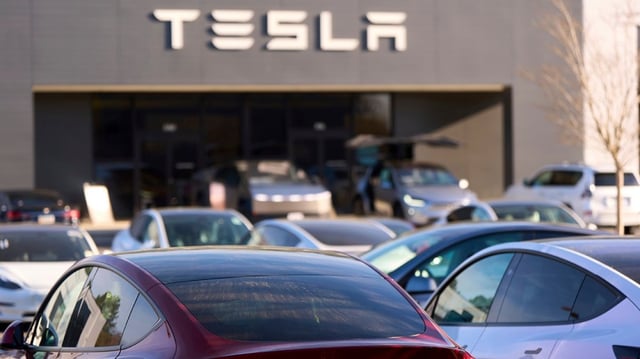Overview
- Tesla's U.S.-based production and vertical integration shield it from much of the impact of President Trump's 25% auto tariffs, which take effect today.
- Approximately 20-25% of Tesla's parts are imported, leaving the company partially exposed to increased costs despite its domestic manufacturing advantage.
- Tesla's competitors, heavily reliant on foreign supply chains, are expected to face more severe financial impacts from the tariffs, potentially increasing their vehicle prices significantly.
- Elon Musk's dual role in the Trump administration has intensified public backlash, contributing to Tesla's 50% stock decline since late December and ongoing protests against the company.
- Tesla warns of potential retaliation from other countries in response to U.S. trade policies, which could further complicate its global market position.

